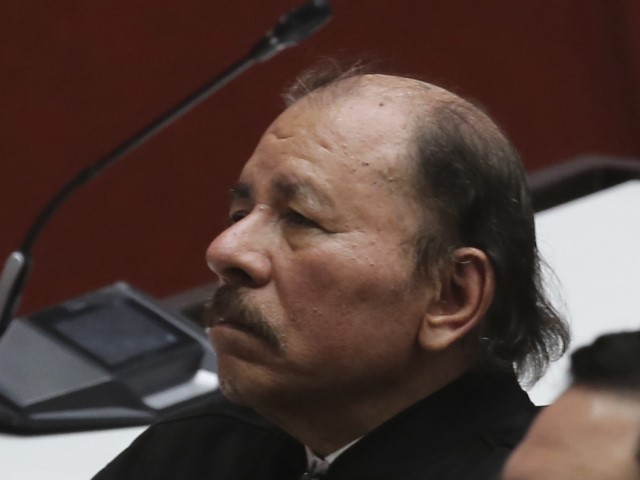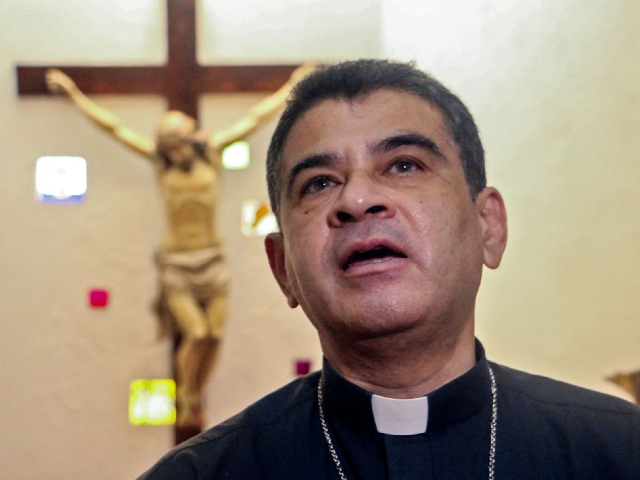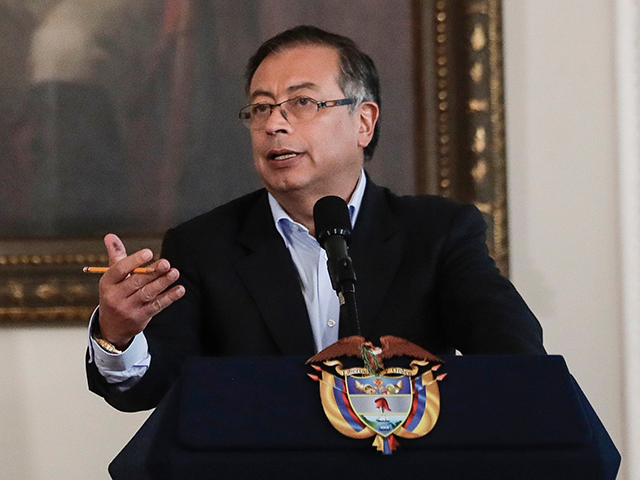Colombia’s left-wing President Gustavo Petro, a former urban guerrilla fighter who spent ten years running with a murderous Marxist insurgent gang in the 1970s, turned against his ideological fellow traveler Daniel Ortega of Nicaragua on Thursday.
Petro lambasted Ortega for expelling hundreds of his most prominent critics from Nicaragua, called for an international human rights intervention, and suggested Ortega should face criminal charges.
In early February, the Ortega regime released 222 political prisoners to the United States at the urging of the U.S. State Department. Most of the prisoners were incarcerated after street protests against Ortega in 2018, which he denounced as a foreign-organized plot to undermine his rule.
“The release of these individuals, one of whom is a U.S. citizen, by the government of Nicaragua marks a constructive step towards addressing human rights abuses in the country and opens the door to further dialogue between the United States and Nicaragua regarding issues of concern,” Secretary of State Antony Blinken said on February 9.
Blinken said the prisoners were suffering “lengthy, unjust detentions.” One of those released was Juan Sebastian Chamorro, who was tossed in jail by the regime in June 2021 right before he planned to run against Ortega in the presidential elections. Others were young student activists and journalists. According to a human rights organization called the Washington Office on Latin America (WOLA), some of the prisoners were abused and tortured.

Nicaragua’s President Daniel Ortega attends the closing ceremony of the XX ALBA Summit, at the Convention Palace in Havana, Cuba, Dec. 14, 2021. (Ismael Francisco, File/AP)
Soon after the released prisoners arrived in Washington, the Ortega regime declared them “traitors,” accused them of “spreading false news,” and stripped 94 of them of their citizenship – an act that clearly violated international treaties against creating “stateless” individuals that Nicaragua signed decades ago. Spain stepped forward to offer permanent citizenship to the exiles, who have been granted two-year temporary stays in the United States.
“Today is a great day for the fight for freedom in Nicaragua as so many unjustly convicted or prosecuted prisoners are released from prisons, prisons where they should never have been. They go into exile, but they go to freedom,” said one of the former prisoners, a famed novelist named Sergio Ramirez.
Several of Ortega’s captives refused to go into exile. One of them, Roman Catholic Bishop Rolando Alvarez, was sentenced to 26 years in prison for treason and stripped of his citizenship the day after the others flew to Washington. The U.S. State Department called for his immediate release last week.

Nicaraguan Catholic bishop Rolando Alvarez speaks to the press at the Santo Cristo de Esquipulas church in Managua, on May 20, 2022. (STR/AFP via Getty Images)
The Colombian Foreign Ministry said on Thursday that it “rejects the dictatorial procedures of those who bring to mind the worst moments of the Anastasio Somoza dictatorship.” The Somozas are the Nicaraguan ruling family overthrown by Ortega’s Sandinista insurrection in 1979, so this was a withering putdown.
The Petro government said it was “repulsed” by the “shocking and inhumane” exile of Ortega’s political opponents, “whose only crime has been defending democracy, the right to criticism, and universal human rights.”
The Colombian statement urged the president of the International Committee of the Red Cross to visit the remaining political prisoners in Nicaragua and guard them against abuse. Most remarkably, Colombia asked the International Criminal Court (ICC) to “take action” against Ortega’s human rights violations.
Colombia’s statement concluded with an offer of citizenship for “those who have been abused by Nicaragua’s intolerant government.”

COMMENTS
Please let us know if you're having issues with commenting.